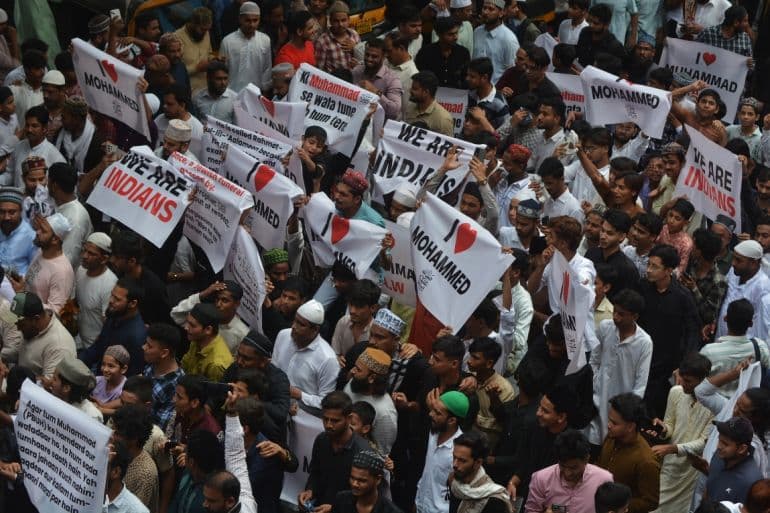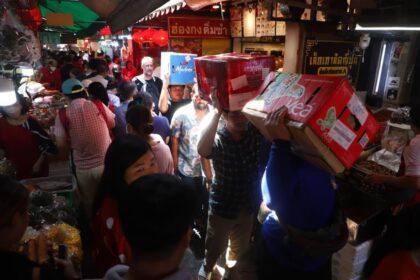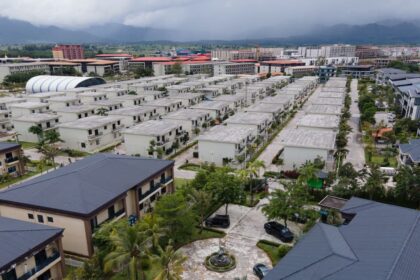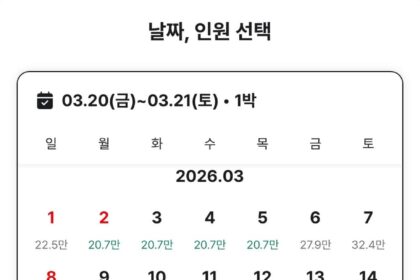How a neighborhood sign sparked a nationwide confrontation
A month after a neighborhood celebration in Kanpur featured a glowing sign that read ‘I love Muhammad’, the fallout has rippled across several Indian states. Police have filed at least 22 cases that name more than 2,500 people. Dozens have been arrested. Homes and shops linked to some of the accused have been demolished. Internet service was cut in parts of one city. What began as a devotional message during Eid Milad un Nabi has turned into a test of India’s promise of free speech and religious freedom, and the limits the state can impose in the name of public order.
- How a neighborhood sign sparked a nationwide confrontation
- Is the phrase I love Muhammad illegal in India?
- The laws and tactics that shaped the crackdown
- Politics and media turn a local dispute into a national flashpoint
- The human cost for young citizens
- What courts and the law may decide
- Regional and international reaction
- What to Know
Officers in states governed by the Bharatiya Janata Party (BJP) say the displays and rallies linked to the message threatened communal peace. Civil rights lawyers counter that there is no law that bans the words ‘I love Muhammad’, and that authorities are leaning on public order provisions to criminalize a peaceful affirmation of faith. The dispute has spotlighted a widening gap between constitutional guarantees and day to day policing that, critics say, often lands hardest on Muslims.
The numbers tell part of the story. Legal groups tracking the cases say more than 2,500 people have been booked, mostly in Uttar Pradesh, with arrests also reported in other BJP ruled states. In Bareilly alone, police detained 75 people after a protest, and four buildings tied to the accused were razed soon after. The scenes, shared widely on social media, fueled anger and fresh demonstrations in other cities.
What happened in Kanpur and Bareilly
The spark was an illuminated board that read ‘I love Muhammad’, mounted on September 4 in a Kanpur neighborhood as part of festivities for the Prophet’s birthday. Some local Hindu residents objected, calling the board a new addition to the event that, they claimed, violated restrictions set by local authorities. Police removed the board and opened a case for promoting enmity on religious grounds. That charge carries a prison term of up to five years.
As the story spread, activists, clerics, and young people echoed the message online and on t shirts. In Bareilly, a rally organized to oppose the Kanpur charges went ahead despite police denying permission. Thousands gathered. Clashes followed. Authorities arrested scores of people, shut down mobile internet, and later brought in bulldozers to demolish properties tied to several accused. India’s Supreme Court has warned officials against using demolitions as extra legal punishment, which require due notice and hearings under municipal law, yet the practice continues to appear after high profile unrest.
Across other states, police registered cases for social media posts that displayed the slogan or videos from rallies. Many of those named are young adults who used short videos and profile images to show support. Families say they now face court hearings, bail applications, and a cloud of uncertainty over jobs and studies.
Is the phrase I love Muhammad illegal in India?
India’s Constitution protects both speech and religious practice. Article 19(1)(a) guarantees freedom of expression, subject to reasonable restrictions for public order, and Article 25 protects the freedom to profess and practice religion. There is no statute that outlaws the words ‘I love Muhammad’. Police have instead cited provisions that penalize promoting enmity, insulting religion with intent, and unlawful assembly, along with local orders that limit rallies or bar new installations during festivals.
Civil liberties advocates say that approach stretches the law. The central legal test for restricting speech in the name of public order requires a clear and proximate link to incitement or violence. A devotional statement is not incitement by itself. Yet, officers have opened cases around processions and gatherings where the slogan appeared, arguing that the events themselves disturbed peace.
Nadeem Khan, who leads the Association for Protection of Civil Rights (APCR), says the focus of the charge sheets reveals the state’s strategy.
There is no law criminalising the mere expression of ‘I love Muhammad’. What we are seeing is the use of assembly and public order provisions against people who displayed the slogan or joined protests, not a ban on the words themselves.
Amnesty International India’s board member Aakar Patel framed the standard more bluntly, pointing to both Indian and international law on free expression.
Targeting peaceful slogans does not meet the threshold for criminal restriction under Indian or international law. Public order concerns cannot justify blanket suppression of religious identity or expression.
That clash over legal principles is now playing out in police stations and district courts. Many of the accused maintain they did nothing more than carry a banner, wear a shirt, or post a caption. Prosecutors say some gatherings turned violent and that restrictions were disobeyed, which triggered criminal liability even if the slogan itself is not illegal.
The laws and tactics that shaped the crackdown
The wave of cases follows a familiar toolkit that Indian police use during communal flare ups and contested rallies. Officers combine public order provisions with charges linked to religion, add process violations, and request broad powers to disperse crowds or block gatherings. On the ground, administrative steps like internet curbs and property actions often accompany arrests.
Common charges
Officials have relied on a cluster of offences. The most common accuse people of promoting enmity between groups, outraging religious feelings with deliberate intent, and issuing statements that could lead to public mischief. Many cases add unlawful assembly or rioting. In several cities, prohibitory orders under Section 144 were in force, barring large gatherings without permission. Police also cite disobedience of public servant orders and the use of loudspeakers or banners in violation of local rules.
- Promoting enmity on religious grounds, which can carry up to five years in prison
- Insulting religion with deliberate and malicious intent
- Statements conducing to public mischief
- Unlawful assembly and rioting
- Violation of prohibitory orders that restrict processions or new installations
India replaced the colonial era Indian Penal Code and Code of Criminal Procedure with new criminal laws in 2024, but the substance of these offences remains similar. Police across states continue to use the familiar terms for clarity. Courts are likely to examine whether the facts in each case match the legal elements, especially the requirement of deliberate intent to provoke or the presence of violence.
Demolitions and due process
Bulldozers have become a symbol of forceful state action in parts of northern India. Municipal authorities claim they are removing illegal constructions. Critics say the timing reveals the real message, since demolitions often follow immediately after protests or clashes. Indian law requires notice, hearings, and an appeal process before a property is sealed or razed. The Supreme Court has repeatedly warned state administrations that demolitions cannot be used as punishment. Rights advocates argue that razing buildings connected to accused persons, without proving an offence in court, undermines due process and inflicts punishment on entire families.
Internet curbs and digital surveillance
Authorities in Bareilly imposed an internet shutdown after the protest. Officials said the measure would prevent rumor mongering and restore calm. In at least one state, police said they would use facial recognition to identify participants in rallies linked to the slogan. Digital rights groups warn that such tools, when used without strong oversight, risk overreach and misidentification. Combined with mass First Information Reports (FIRs), surveillance can widen the circle of the accused far beyond those who committed any criminal act.
Politics and media turn a local dispute into a national flashpoint
Uttar Pradesh Chief Minister Yogi Adityanath promised strict action against those who, he said, disturbed public order. His statements on law and order were carried widely by television channels and online platforms. Supporters cast the response as a signal that the state will not tolerate provocation during sensitive festivals. Opponents say the rhetoric singled out a community and encouraged punishment that bypassed courts.
Soon after the Kanpur episode, party leaders in Varanasi displayed posters that read ‘I love bulldozer’, a pointed reference to demolitions that followed unrest. The image of the bulldozer has become political shorthand for decisive policing. For many Muslims, it has also become a sign of fear, because demolitions often target neighborhoods where the accused live. The dueling posters showed how a message of personal devotion and a symbol of state force became rivals in a contest of visibility.
Television debates and social media clips amplified every clash and arrest. Local disputes that once stayed within a neighborhood now reach a national audience within hours. That attention can raise the temperature on the ground, as rival groups seek to stage their own displays and police feel pressure to act quickly. Community leaders warn that double standards fuel anger, since Hindu festivals often feature new decorations and banners without similar pushback.
The human cost for young citizens
Many of those booked are in their teens or twenties. Some were caught by a camera as they walked near a rally. Others changed a profile photo or reposted a clip. Even if they are never convicted, an arrest can lead to days in jail, missed classes or work, legal fees, and a record that may shadow job applications. Families spend savings on bail. Street vendors and small shop owners lose income while they fight cases.
Home demolitions add another layer of harm. When a structure is brought down, the blow is not limited to the accused. Parents, siblings, and children can lose shelter and assets in a single afternoon. Critics call this collective punishment. Officials who defend the demolitions say they target unauthorized construction. Courts will have to sort these claims case by case. Until then, the threat of a bulldozer parked at the corner becomes a powerful form of pressure.
What courts and the law may decide
Indian courts have long held that speech can be restricted for public order only when there is a close connection to incitement or a likely breach of peace. The Supreme Court has struck down vague limits on online expression and asked police to take action against hate speech. The thread that runs through these rulings is a demand for precision. Laws must be applied with care, and enforcement must be even handed across communities.
Petitions challenging FIRs and demolitions are likely to land before high courts and the Supreme Court. Judges could ask for records that prove notice, hearing, and reasons for each demolition. They could also test whether a given slogan, by itself, can amount to an offence that promotes enmity or outrages religious feelings. Orders in recent years suggest courts will look closely at administrative proportionality. That means they will ask whether the chosen action, such as mass arrests or razing a home, is a proportionate response to the alleged conduct.
Regional and international reaction
Protests have taken place in cities including Delhi, Lucknow, and Hyderabad, with organizers demanding that cases be withdrawn and those detained be released. Muslim groups say the campaign was a peaceful affirmation of faith. Rights organizations inside and outside India have warned that the crackdown lowers the bar for criminalizing identity and expression.
Officials and government supporters present a different picture. They say some rallies turned violent, with stone pelting and attacks on police, and that demolition drives focus on illegal structures, not religion. They argue that strict enforcement prevents larger clashes and protects both communities. The coming months will show whether dialogue and neutral application of the law can reduce tensions and restore trust.
What to Know
- Police have registered at least 22 cases that name more than 2,500 people, with dozens of arrests across several BJP ruled states
- The phrase ‘I love Muhammad’ is not outlawed in India, and civil rights lawyers say authorities are using public order and assembly laws instead
- The trigger was an illuminated sign in Kanpur during Eid Milad un Nabi, which drew complaints as a new addition to festivities
- In Bareilly, a protest saw 75 arrests, an internet shutdown, and four demolitions linked to the accused
- Rights advocates cite Supreme Court warnings against demolitions as punishment and call for due process
- Young people have been booked for social media posts and videos, raising concerns about a chilling effect on expression
- State leaders frame the response as law and order, while critics say it disproportionately targets Muslims
- Courts may review demolitions and test whether the use of public order laws meets constitutional standards












